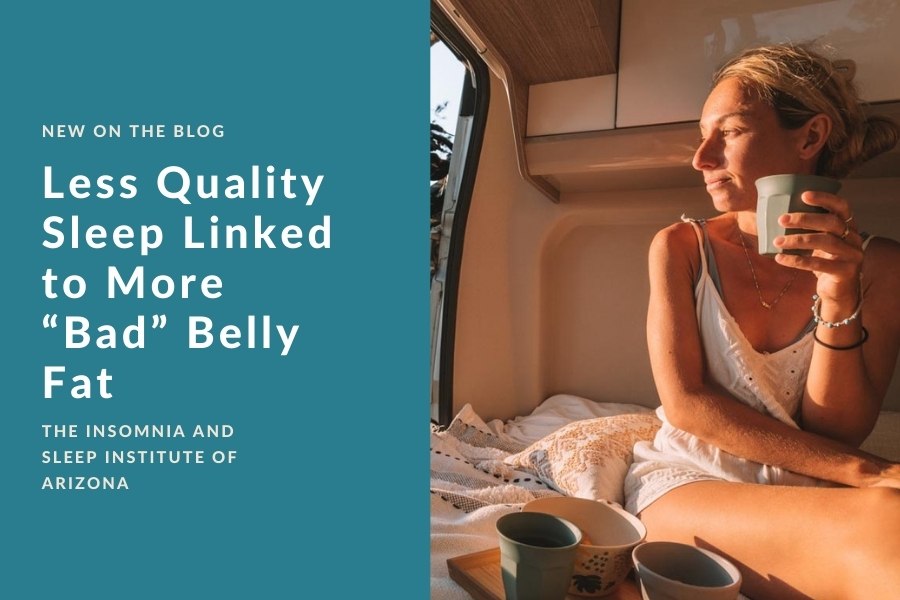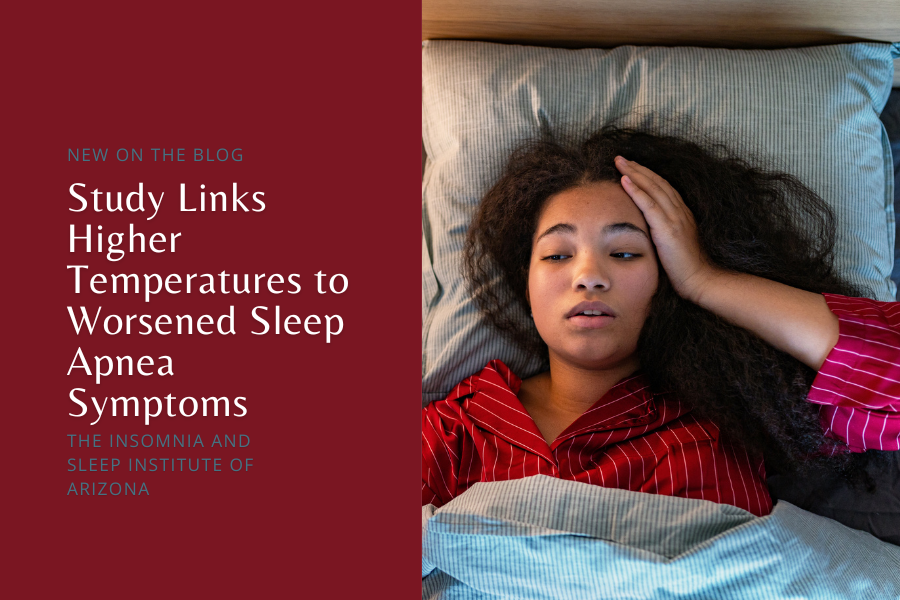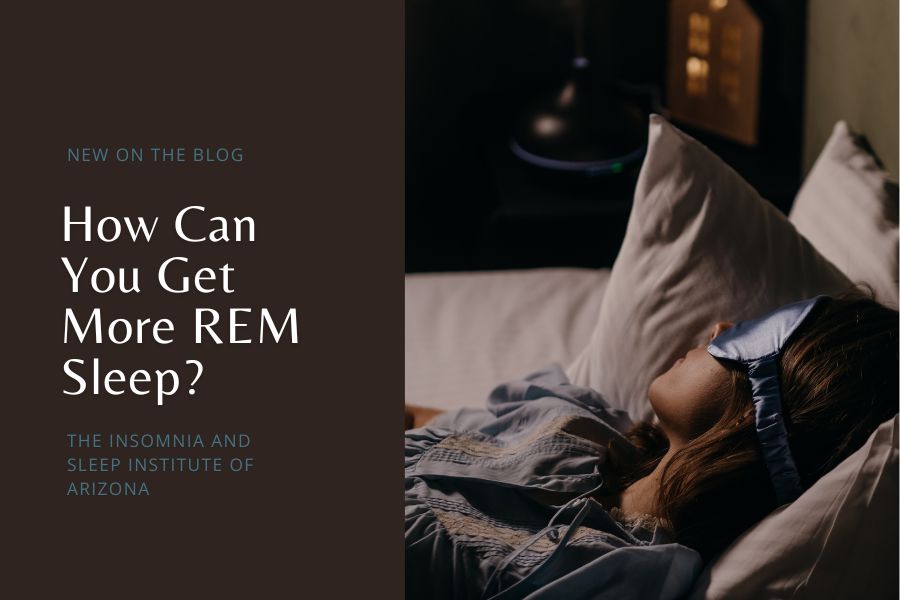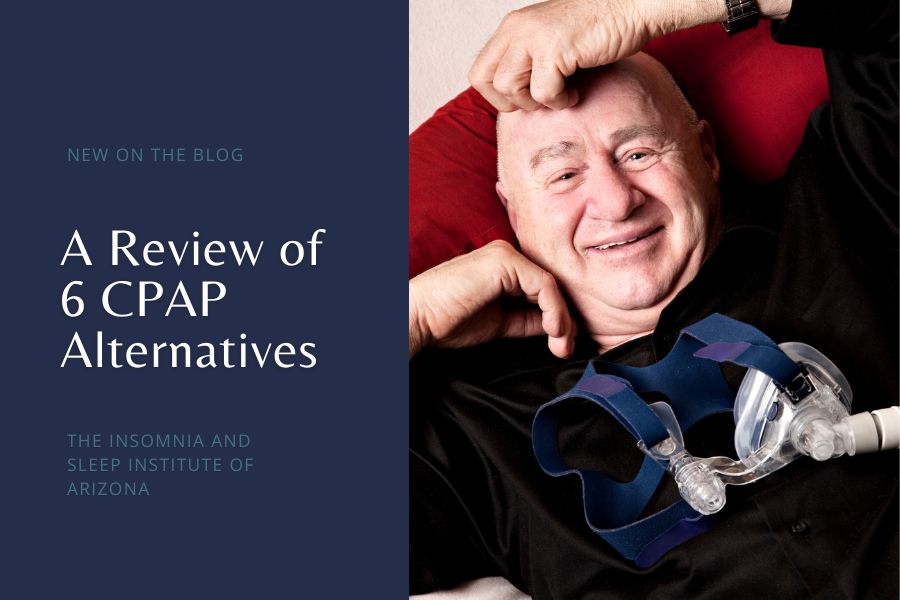The Mayo Clinic released a study that showed a lack of good sleep mixed with easy access to food will increase calorie consumption—and the “bad” kind of belly fat that is connected to a myriad of co-morbidities. The Insomnia and Sleep Institute of Arizona is staffed by sleep specialists who concentrate in sleep medicine. Led by the “Top Doc” in the area, triple board-certified Dr. Ruchir P. Patel, we treat patients as young as two years old and address all sleep disorders including insomnia and obstructive sleep apnea (OSA). It is not so surprising that sleeping less means eating more, especially for those prone to midnight snacking, but it is important to bear in mind how dangerous visceral stomach fat can be.
Visceral fat accumulates inside the abdomen. The Mayo Clinic reports on a randomized controlled crossover study that showed lack of enough sleep led to a nine percent increase in overall belly fat and an 11 percent spike in abdominal visceral fat. Not all fat is “bad” fat and, after all, we all need fat on our bodies to be healthy and protect ourselves. However, visceral fat has no redeeming qualities. It is deep inside the abdominal area and next to our organs, and has had strong links to metabolic and cardiac diseases in many studies.
Sleep, Eating, and Bad Fat
The full findings can be found in the Journal of the American College of Cardiology and was funded by the National Heart, Lung, and Blood Institute. According to the researchers, “Our findings show that shortened sleep, even in young, healthy and relatively lean subjects, is associated with an increase in calorie intake, a very small increase in weight, and a significant increase in fat accumulation inside the belly.” Some may be surprised to learn that relatively little “weight gain” occurs, but ultimately what matters more is the type of fat that accumulates, not necessarily the overall amount.
In “normal” or healthier models, fat is deposited right under the skin. However, it seems that lack of adequate sleep “appears to redirect fat to the more dangerous visceral compartment” according to the authors of the study. Even more troubling is that researchers found that even in recovery (quality) sleep with these patients, there was of course a decrease in calorie intake and weight (as they could not and were not eating) but visceral fat continued to increase. The authors say that this suggests lack of good sleep is a “previously unrecognized trigger for visceral fat deposition, and that catch-up sleep, at least in the short term, does not reverse the visceral fat accumulation.” They conclude that inadequate sleep should be considered a contributor to the obesity epidemic as well as metabolic and cardiovascular diseases.
Sleep and Health Matters
In total, the study included 12 healthy people (not obese) who committed to a 21-day inpatient study. They were then randomly assigned to either the control group and got normal, healthy sleep or the restricted sleep group. This was followed by a 90-day “washout” period. Everyone in every group had access to whatever food they liked. The researchers watched energy intake and expenditure, body composition and weight, appetite biomarkers, and fat distribution including all types of fat. During the first four days, participants simply acclimated and all were allowed nine hours of time in bed to sleep. Then, for two weeks, the restricted group only received four hours while the control group continued to be offered nine. Three days of recovery followed where everyone could enjoy nine hours of sleep.
The restricted group consumed 300+ more calories daily while getting just four hours of sleep, eating about 17 percent more fat and 13 percent more protein compared to when they were in acclimation. Most of this extra consumption occurred in the first few days of sleep deprivation before tapering off. Their energy expenditure remained about the same throughout the study. However, the researchers say that it was tricky to gauge visceral fat accumulation, which was “only detected by CT scan and would otherwise have been missed, especially since the increase in weight was quite modest—only about a pound.” In other words, just measuring their weight would be “falsely reassuring in terms of health consequences of adequate sleep.”
Getting enough quality sleep is critical for many reasons, including maintaining a healthy weight and the right kind of fat. If you struggle with your sleep, contact The Insomnia and Sleep Institute today to schedule a consultation. Call the office or complete the online contact form now.








